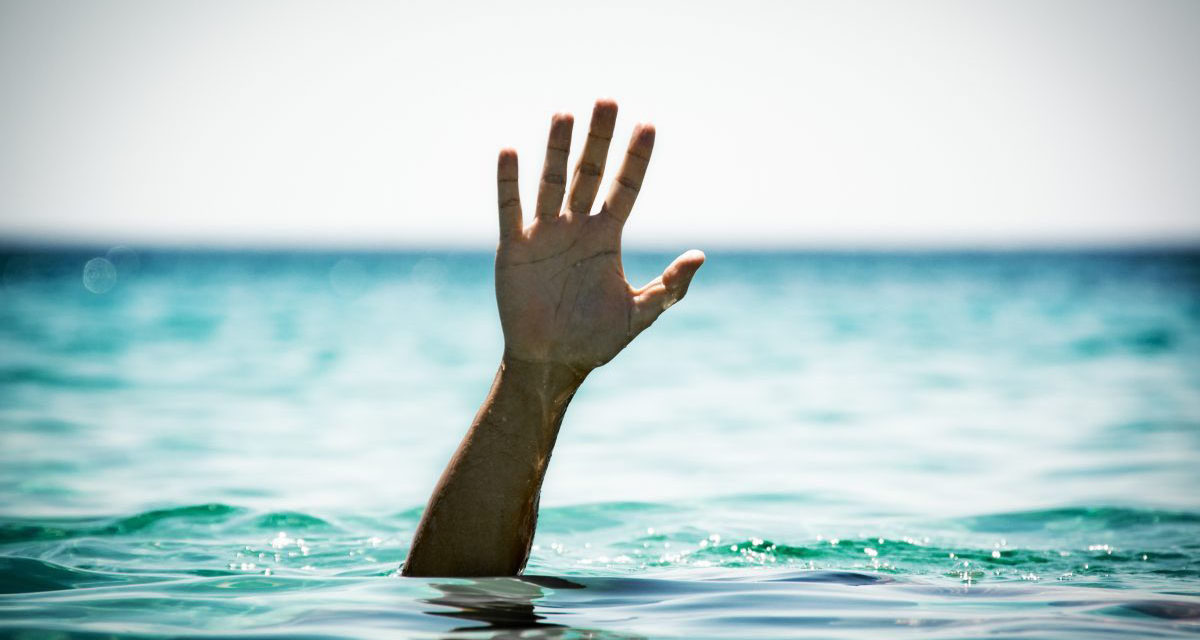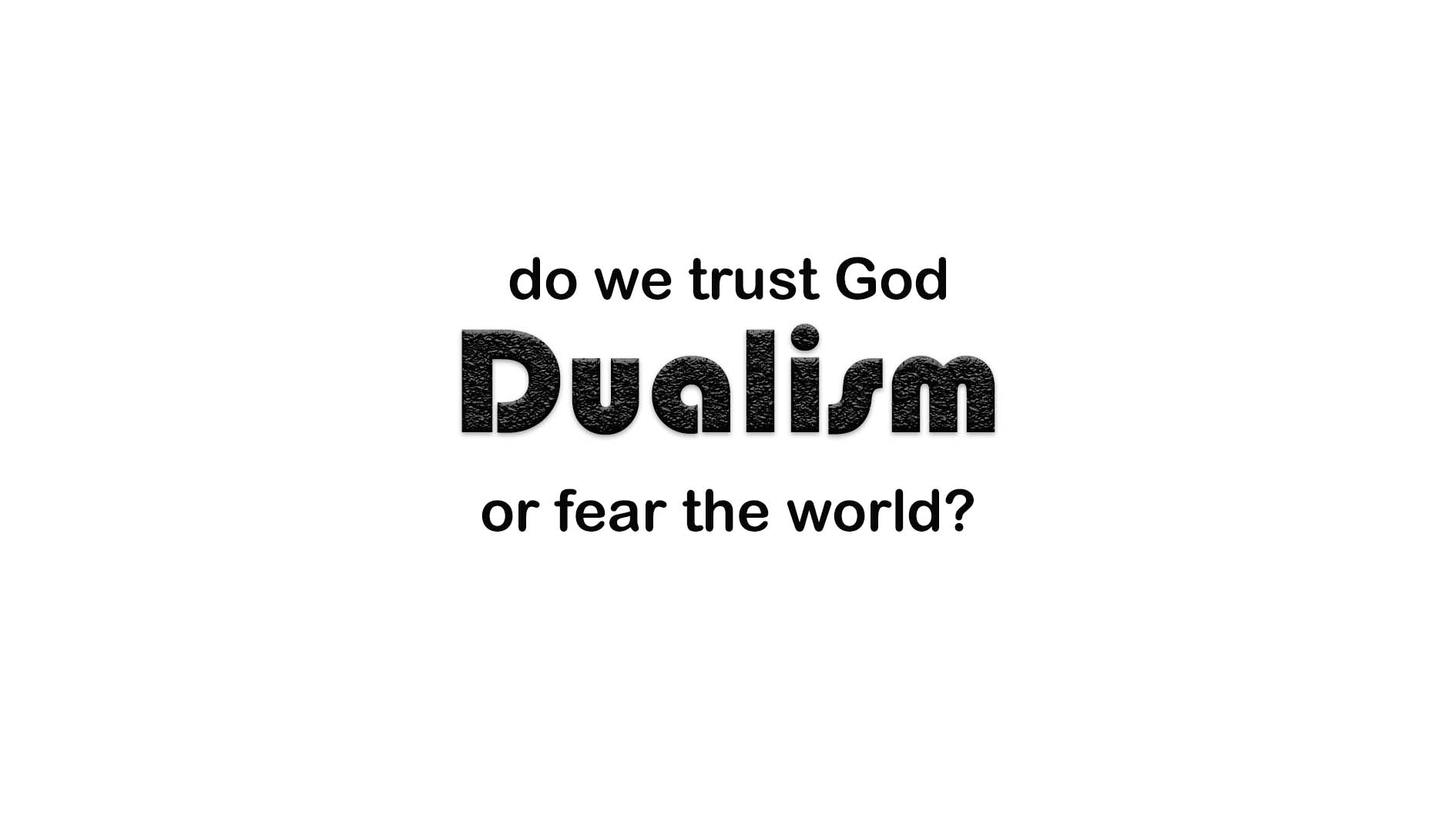The ship has capsized and people are in the water, they are flailing and drowning. It’s icy cold. The rescue ship comes to you and you are pulled in, wet and miserable but grateful to be alive and able to finally rest from your struggles. There are plenty of seats available. Do you:
(1) Praise the guy rowing the boat and start telling the other passengers about how awesome he is–trying to convince the other passengers you have the only correct way of seeing him while ignoring the people still in the water.
(2) Start hoping that the boat will get to land soon so that you can get warm and dry and get something to eat and drink–constantly asking the rower to do just that.
(3) Look out over the water with disgust at the people who haven’t been rescued yet and wonder why they are so rebellious before telling them to swim harder so they can get to the boat themselves.
(4) Find their situation so offensive that you hold up signs telling them how horrible they are and convincing them that the boat rower hates them.
(5) Forget that you were ever in the water yourself, that the shipwreck really wasn’t your fault, and begin mocking the people for how ridiculous they look struggling to stay above water.
(6) Appoint yourself a lookout, scan the horizon, watch the ship go down while ignoring the people in the water and giving a play by play account of how the ship looks as it is going down.
(7) Grab an oar, scan the horizon, and help the rower get to the next person while calling out to them with words of hope–even going so far as to risk your own life to pull them in despite being cold and wet and hungry and thirsty– then encouraging the rower to remain on the water until all lives are saved.
Now, of course, the ship is the world and the mess it is in–a mess that we were all born into. The boat is the worldwide Body of Messiah, the church, the ekklesia, etc. and the rower is the Son of Man. The passengers are those to whom the message of the Cross came and who received it with great joy. The drowning, of course, represent the lost. Land represents the final coming of the Son of Man and the Messianic Kingdom, the Wedding Banquet of the Lamb.
The first group praised the Son of Man and started extolling His virtues to those who already knew and were grateful, yet failed to tell those still lost of the saving hope that was available. They got sidetracked arguing with people who were already saved.
The second group was grateful for the Cross but had no endurance to wait as the rest of the lost were saved, and they prayed that the Son of Man would just usher in the world to come as soon as possible–without a thought to those still lost. This is a very large percentage of the passengers.
The third group represents those who believe, at least subconsciously, that they saved themselves from sin and death and were rescued based on merit instead of mercy.
The fourth group never met the Son of Man, though they talk about Him as though they do. However, they like the idea of being an elite class in a warm, safe environment and they also love letting other people know how elite they are and how unique in being loved despite all evidence to the contrary.
The fifth group is those who act as though they were never in need of saving in the first place and come to despise those who are. They have not yet learned to love.
The sixth group has the appearance of busily working, but they are mostly just complaining and their works are of dubious usefulness to the Kingdom when other things are more immediately needful.
The seventh group works in cooperation with the Son of Man–choosing the self-sacrificial path of love while ignoring their own desires for comfort and their own needs–actively going out and rescuing those who are lost and dying and who are in no hurry for the Son of Man to usher in the Kingdom because there are still too many empty seats at the Banquet table and so many lost people to be saved.
So, every healthy tree bears good fruit, but the diseased tree bears bad fruit. A healthy tree cannot bear bad fruit, nor can a diseased tree bear good fruit. Every tree that does not bear good fruit is cut down and thrown into the fire. Thus you will recognize them by their fruits. “Not everyone who says to me, ‘Lord, Lord,’ will enter the kingdom of heaven, but the one who does the will of my Father who is in heaven. On that day many will say to me, ‘Lord, Lord, did we not prophesy in your name, and cast out demons in your name, and do many mighty works in your name?’ And then will I declare to them, ‘I never knew you; depart from me, you workers of lawlessness.’ (Matthew 7:17-23, ESV)
Yeshua/Jesus in this passage was speaking to a completely Jewish audience of faithful commandment keepers–and yet He spoke to them of bad fruit. Although commandment-keeping is a sign of allegiance through obedience, it is not enough if it is just an act of rote obedience–a life spent concentrating on dos and don’ts even when checkered with the working of miracles. We must also bear fruit worthy of repentance, the fruit of the Spirit which leads us into truly fruitful works on behalf of the Kingdom. You can keep every commandment to the letter and work miracles and still fail to self-sacrificially love those most in need of love, but that is evidence of a diseased existence. You can keep the commandments while failing to even add your own children to the Book of Life, much less anyone else’s children. Good fruit borne out of a healthy tree comes forth when we are working in a subservient partnership with God the Father through serving the Messiah in His mission of salvation. As He gave His life to bring salvation, making room at the Messianic banquet for all from the nations who would turn and believe, a life lived for Him will seek to add to the Kingdom at whatever cost to ourselves. It doesn’t mean that everyone whom we touch will be saved, not even our own kids, but it does mean that we are working with Him instead of just trying to see to ourselves. Commandment keeping can be the most selfish, diseased and resentment-laden activity on earth when done for the wrong reasons and in the wrong spirit.
The path is narrow and few will find it, yes, but we must make sure that we aren’t making finding it any more difficult than it needs to be or I promise we will be crying out “Lord, Lord…” and we will not enter in ourselves. The path is life and wonderful–but do we present it as a burden?
“With the merciful you show yourself merciful;
with the blameless man you show yourself blameless;
with the purified you show yourself pure;
and with the crooked you make yourself seem tortuous.
For you save a humble people,
but the haughty eyes you bring down.” (Psalm 18:25-27)
We will face the very God we put before the eyes and ears of others–if we present before the lost a God who does not want them and who mocks them in their helpless misery, I am pretty darned sure He will appear before us as a mocking God who isn’t interested in us either. We need to keep our heads down and humbly and diligently do His work–the work of bringing souls into the Kingdom and not the work of driving them into the arms of the enemy and the world.




















Bless you, Sis! This , good in itself, reminds me to re-read the old ‘Character of God\ blogs. ♥